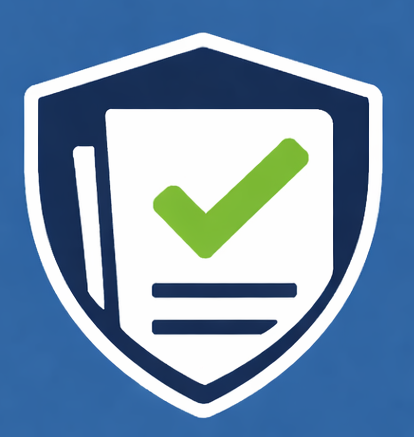CPA Certification Guide
CPA Certification Guide
The Certified Public Accountant (CPA) is the most prestigious accounting credential in the United States. It validates expertise in accounting, auditing, taxation, and financial reporting, and is often required for careers in public accounting, corporate finance, and government.
Why CPA Certification Is Important
- Legally required to sign audit reports and represent clients before the IRS.
- Recognized by firms worldwide as the gold standard in accounting.
- CPAs earn 10–15% higher salaries on average than non-certified accountants.
- Opens doors to roles in public accounting, corporate leadership, and consulting.
Requirements and Eligibility
CPA requirements vary by state board, but general requirements include:
- Education:
- 150 semester hours of college credit (typically a bachelor’s degree + additional coursework).
- Degree must include accounting and business-related credits.
- Experience:
- 1–2 years of supervised work experience under a licensed CPA (varies by state).
- Ethics Exam:
- Some states require a separate ethics exam after passing the CPA exam.
Exam Details (Uniform CPA Exam)
- Exam Fee: Around $250 per section (total ~$1,000) + application fees (varies by state).
- Format: 4 exam sections, taken separately (each 4 hours).
- Exam Sections:
- AUD – Auditing and Attestation
- FAR – Financial Accounting and Reporting
- REG – Regulation (taxation, business law)
- BAR / TCP / ISC – Business Analysis & Reporting, Tax Compliance & Planning, or Information Systems & Controls (new 2024 CPA Evolution model)
- Passing Score: 75 on a 0–99 scale for each section.
- Testing Windows: Continuous testing year-round.
Salary and Career Outlook
- Average salary: $85K–$110K in the U.S. (varies by experience).
- Senior CPAs and partners can earn $150K–$200K+.
- Roles: Public Accountant, Tax Advisor, Financial Analyst, Auditor, Controller, CFO.
- Strong demand: Businesses and governments require CPAs for compliance and financial reporting.
Step-by-Step Roadmap to CPA
- Check State Requirements – Confirm eligibility with your state board of accountancy.
- Apply for the Exam – Submit transcripts and fees.
- Choose Your Exam Order – Many start with FAR or AUD.
- Study 3–6 Months Per Section – Use structured review courses.
- Schedule Exams – Take through Prometric testing centers.
- Pass All Four Sections – Within an 18-month rolling window.
- Complete Work Experience – Gain 1–2 years under a licensed CPA.
- Earn Your CPA License – Apply through your state board.
Exam Pass Tips and Mistakes to Avoid
Tips for Success
- Use a CPA review course (Becker, Wiley, Surgent, Gleim).
- Focus on multiple-choice questions + task-based simulations.
- Create a study plan with at least 20 hours per week of prep.
Common Mistakes
- Underestimating the FAR section (largest and hardest).
- Ignoring time limits — each section is 4 hours but intense.
- Not planning exam order strategically (stacking hardest sections together).
Best Study Resources
- Becker CPA Review (most widely used)
- Wiley CPAexcel
- Surgent CPA Review
- Gleim CPA Review
- State board guidelines + AICPA Blueprints
Renewal and Continuing Education Requirements
- CPAs must complete Continuing Professional Education (CPE) credits:
- Typically 40 hours annually or 80 hours every 2 years (varies by state).
- Renewal fees and ethics courses required by state boards.
CPA vs Other Certifications
| Certification | Focus | Difficulty | Cost | Avg Salary | Best For |
|---|---|---|---|---|---|
| CPA | Auditing, tax, financial reporting (U.S.) | Very High | $1,000+ | $110K | Accountants, auditors, finance leaders |
| CFA | Investments, portfolio management | Very High | $3,000+ | $120K+ | Investment analysts, financial advisors |
| CMA | Corporate finance & management accounting | High | $1,000–$2,000 | $100K | Corporate controllers, managers |
| CIA | Internal auditing | Medium | $1,000 | $95K | Internal auditors |
👉 CPA is best for U.S. accountants and auditors, while CFA is investment-focused, CMA is corporate finance, and CIA is for internal audit.
Practice Questions (Mini Quiz)
- Which CPA exam section focuses on taxation and business law?
- A) AUD
- B) FAR
- C) REG ✅
- D) BAR
- How many hours of college credit are generally required for CPA eligibility?
- A) 120
- B) 135
- C) 150 ✅
- D) 160
- Within how many months must all four CPA exam sections be passed?
- A) 12 months
- B) 18 months ✅
- C) 24 months
- D) 36 months
Why the CPA Certification Can Create Opportunity
The CPA certification is the most respected credential in accounting. It not only proves your technical expertise in financial reporting, auditing, and taxation but also establishes you as a trusted professional in business and finance.
If your career goal is to become an auditor, controller, partner at a firm, or even a CFO, the CPA license is essential. With the right preparation, commitment, and ongoing education, the CPA can open doors to leadership and high-earning opportunities across industries.






